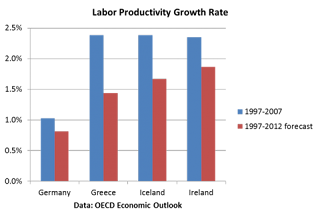 Ναυτική τραγωδία στον Ατλαντικό. Δύο Έλληνες αξιωματικοί του εμπορικού ναυτικού, μέλη του πληρώματος του, υπό ελληνική σημαία, δεξαμενόπλοιου «Aegean Angel» έχασαν τη ζωή τους ενώ ένας τρίτος, Κύπριος αξιωματικός τραυματίστηκε σοβαρά, όταν, κατά τη διάρκεια επιθεώρησης του πρωραίου καταστρώματος μετά από θαλασσοταραχή, χτυπήθηκαν από κύμα.
Ναυτική τραγωδία στον Ατλαντικό. Δύο Έλληνες αξιωματικοί του εμπορικού ναυτικού, μέλη του πληρώματος του, υπό ελληνική σημαία, δεξαμενόπλοιου «Aegean Angel» έχασαν τη ζωή τους ενώ ένας τρίτος, Κύπριος αξιωματικός τραυματίστηκε σοβαρά, όταν, κατά τη διάρκεια επιθεώρησης του πρωραίου καταστρώματος μετά από θαλασσοταραχή, χτυπήθηκαν από κύμα.Πρόκειται για τον 47χρονο πλοίαρχο και τον 33χρονο Α' μηχανικό, ενώ τραυματίστηκε σοβαρά ο 34χρονος υποπλοίαρχος.
Το δεξαμενόπλοιο που ανήκει στην εταιρεία Arcadia shipmanagement co LTD και είχε αποπλεύσει έμφορτο από το Ταλίν της Εσθονίας, για το Χιούστον του Τέξας, βρισκόταν σε απόσταση 790 ν.μ. από το πλησιέστερο λιμάνι των Βερμούδων.
Σύμφωνα με την πλοικτήτρια εταιρεία παρασχέθηκαν άμεσα οι πρώτες βοήθειες στον τραυματισθέντα υποπλοίαρχο και δίδονται συνεχώς όλες οι απαραίτητες οδηγίες για την περίθαλψή του σε συνεργασία με τον Ερυθρό Σταυρό μέχρις ότου καταστεί δυνατή η μεταφορά του σε νοσοκομείο στην πλησιέστερη ακτή.
Το Aegean Angel ταξιδεύει για Βερμούδες και όταν φτάσει σε απόσταση 200 ναυτικών μιλίων τότε θα μπορεί να γίνει αεροδιακομιδή του τραυματισμένου ναυτικού.
Το υπουργείο Θαλασσίων Υποθέσεων Νήσων και Αλιείας ζήτησε τη συνδρομή του Υπουργείου Εξωτερικών μέσω των Προξενικών Αρχών, για την παροχή κάθε αναγκαίας βοήθειας στους ναυτικούς του πλοίου, με έμφαση στην περίπτωση του τραυματισθέντα, καθώς και για την διευκόλυνση της παλιννόστησης των σορών των θανόντων.
«Η ναυτική οικογένεια σήμερα θρηνεί. Θέλω να εκφράσω την οδύνη μου για το χαμό δύο ναυτικών μας και το σοβαρό τραυματισμό ενός Κύπριου συναδέρφου τους στο ‘AEGEAN ANGEL’ που έπλεε στον Ατλαντικό Ωκεανό» αναφέρει σε δήλωσή του ο υπουργός Θαλασσίων Υποθέσεων Νήσων και Αλιείας Γ.Διαμαντίδης εκφράζοντας παράλληλα τη βαθύτατη οδύνη του και τα συλλυπητήριά του στις οικογένειες των εκλιπόντων ναυτικών.
Τα θερμά της συλλυπητήρια στους συγγενείς των θυμάτων εκφράζει και η πλοιοκτήτρια εταιρεία.
www.kathimerini.gr










